|
Regulatory Accountability involves policies and regulations instituted by the government.
Market accountability involves feedback from the people who actually consume your services and products. Regulatory accountability is checklist accountability. You can take a document, see what it requires of you, and check off the items. The public school system prefers this kind of accountability. It’s largely administrative, and it doesn’t require the approval of parents. It doesn’t value agility. It’s top-down. Market accountability is much more difficult to achieve. To be accountable to the market is to figure out what people want and to consistently meet their expectations. That’s tough. Let’s take these two kinds of accountability outside of the public school system to look at them closer. You want to start a restaurant. You’re going to have to deal with both regulatory accountability and market accountability. Regulatory Accountability: Remit taxes, train and compensate employees, keep up with food handling and safety requirements, obey minimum wage laws, allow inspections from the county, follow terms of your lease, file business license paperwork and fees, etc. That’s the easy part. The hard part is dealing with market accountability. Sure, you can file all of your paperwork and meet the terms of your lease, but can you be accountable to customers? You’ll have to figure out what kind of food they want, and you’ll have to prepare it the same way every time they come. You’ll have to train your employees to treat customers well, or your customers will never come back. This is the hard part, and it’s the reason only the best restaurants survive. Very few restaurants go out of business because they don’t comply with regulations. Public schools are good at following regulations. So are private schools. If you look at the NDE website, you’ll find all kinds of regulations for both public and private schools. The following are screenshots of some of the current regulations governing private schools in Nebraska, according to the NDE website.
Private schools have to deal with both regulatory and market accountability because they’re competing with other private schools for the same few customers. Only a few families in Nebraska can afford to send their children to private school, and the schools have to be attractive to those who can choose.
The public schools don’t have to deal with market accountability, and this is a major reason they fight against school choice. What would happen if low- and middle-income families suddenly had the option of sending their children to non-district schools? The district public schools would suddenly be subject to the whims of the market, and that’s the last thing they want. But it’s the best thing for parents and kids. I want to play you a clip from a local news program in Utah where they have public charter schools. Public charter schools are open to all students and they don’t require tuition. Because of their presence, public schools have learned to deal with the hard kind of accountability, and the results are great. In this clip, a principal at a district public high school talks up his school’s offerings because it’s just about time for parents to make their decisions about school for next year.
...Can you hear the difference between reulatory accountability (which administrators in Utah also have to deal with) and market accountability (which prompts district public schools to develop the kinds of programs parents want?)
Before we moved to Nebraska, we lived in Colorado, which has had market accountability in K-12 eductation since 1992 in the form of charter schools. Our kids attended both district and charter schools there, and I can tell you that the environment is totally different. In both kinds of schools, teachers and administrators are keenly interested in what parents want. Of course they still have regulatory accountability, but that’s not what makes the difference. It’s market accountability that matters. When there’s market accountability, all children benefit. The kids in district public schools benefit because principals are suddenly interested in turning their schools into institutions that can compete with every other option out there. It’s a win-win! I can hear the Nebraska administrators from here. They’re saying Whoa whoa whoa--what about the third kind of accountability, school boards elected by the public. In some places, I imagine there might be a tiny bit of accountability that comes from school board members, but here in Nebraska, it doesn’t exist. In fact, from what I’ve seen here in Lincoln, the school board works against parents, not for us. They stand shoulder to shoulder with administrators and even the media to squash the concerns of parents and rubber stamp everything the district wants. Regulatory accountability is nice for government employees, but it can be pretty awful for parents and students. I’m going to pronounce an understatement here: when I ran for school board in Lincoln, the district didn’t want me to win. One day I got a phone call from someone at district administration. She said something like this: “The Lincoln Journal Star called and asked us for some information about your children’s enrollment at LPS. Under policy blah blah blah, we can give certain student information to the media. We’re not calling to ask permission. We’ve already done it. We just wanted to let you know.” Oh, okay. You’re using a regulation to leak minors’ information to the media. Got it. Nice accountability. After the Lincoln Journal Star’s article was printed, containing my kids’ student information, a local radio talk show host called me and asked how the newspaper got the information. I told him about the phone call from the district, and he couldn’t believe it. He was furious on my behalf. Why would the newspaper be in on this regulatory-based effort to intimidate a candidate for school board? Newspaper reporting doesn’t pay much these days, but if you’re friendly to the school district, you can springboard into a lucrative career at the district. Mary Kay Roth worked as a reporter at the Journal Star and then transitioned to LPS to be Communications Director. In 2017, she made $102,451 at the school district. I’m guessing that’s at least double what she made at the Lincoln Journal Star. It’s all so cozy in the regulatory world, free from market accountability. I’m excited for the time when we have market accountability in Nebraska. Innovation will flourish, and more kids will find schools that meet their needs.
0 Comments
Howard Fuller gets it.
He attended the November Elizabeth Warren rally held at Clark Atlanta University. The rally was billed as a recognition of the historic role of black women in protest. And a group of black women (and men) ended up protesting at the rally. They protested Warren’s recently unveiled education plan, which curtails charter schools. Here’s what Fuller experienced (as published in The 74 Million): “Sitting in that gym, listening and absorbing all of it, was in some ways surreal. We had a section in the bleachers. There were probably about 175 people from the parent network. There was a huge electronic sign above the stage saying black women are valued, and then Elizabeth Warren’s name under it: Elizabeth Warren values black women. The whole program was set up to honor black women who had engaged in struggle over time. All these speakers had been lavishing praise on Warren, how she was going to fight for all of us and, “We got to flip the table, create a new table.” I’m sitting there saying to myself, “You’re talking about all this struggle, yet you’re pursuing a policy that denies the self-determination of black women.” For me, the whole rally was a contradiction. That for me was surreal.”
Here in Nebraska, we’ve seen the same script play out. Privileged white women like Connie Duncan and Kathy Campbell claim to “advocate for women” while actively working to make sure only wealthy mothers have school choice. If they genuinely cared about women, they would help women with one of their biggest worries (their kids’ education). Duncan’s situation parallels Warren’s even further: both women sent their own children to private school but work to prevent low-income kids from having the same opportunities.
Back to Fuller: Fuller accompanied Sarah Carpenter to another room where she visited with Elizabeth Warren (see the video here). “She [Carpenter] was really just pouring out her heart, right? And she said, she being Sarah, “Your children probably went to a private school.” Warren said to her, in a manner that tried to make Sarah feel uninformed and stupid, “No, my kids went to public school,” and then patted her hand. If you look at the video, you’ll see it. I didn’t know at that moment of time she was lying about the school situation of her child, that came out later. But it was just — how can we say we value black women and treat Sarah the way that she did? It was disgusting."
Nebraska parents have dealt with this patronizing attitude for far too long. When parents ask for more options, we’re met with insulting responses like, “Nebraska already has school choice.”
But it doesn’t stop there. Instead of just trying to placate parents with insulting platitudes, the Nebraska elite goes one step further and accuses parents of being paid to advocate for choice. It must be unthinkable to our state’s comfortable elite that parents would stand up to the status quo simply because they love their children. Money must be involved, right? Just a few weeks ago, we got some comments on our blog posts that illustrate this.
And it’s certainly not the first time. From the beginning of our grassroots parent organization, people have asked who funds us. We don’t have funding. We’re not a non-profit. We’re parents who love our children. We trust parents and believe they will make better decisions for kids than faraway administrators and politicians possibly could.
And Fuller sees the “money attacks” for what they are. Again from the 74 Million piece: “The second thing is, there was, of course, reference to Dr. Martin Luther King and his struggles. And what’s really interesting is the way that J. Edgar Hoover attacked Martin Luther King was to accuse him of being funded by the communists. In my way of looking at the world, they’re using the same playbook, whether it’s Elizabeth Warren or [her] so-called progressive supporters, the same playbook. We don’t talk about the issues that people are raising, like the right of self-determination, the failure of the traditional system to educate their children, the need for them to have the same powers to choose that Warren had for her own child. They don’t want to talk about that. They want to try to get you caught up in, “Well, they must be here because the Waltons paid them to be here,” or, “They’re paid provocateurs.” It’s an old tactic. That playbook has been used over and over against people who tried to make a change in the status quo, and what’s interesting is, you could ask anybody in there, “Who pays you?” or “How did you get here?” or “Who paid for these buses?” or whatever. But I assume that people are there because they believe in whatever it is they’re talking about, not because somebody paid them.” We have politicians like Elizabeth Warren right here in Nebraska
Nebraska state senator Lynne Walz chose to send her children to Archbishop Bergan Catholic School in Fremont. This school prides itself on “recognizing the individual learning styles and abilities of each student.” With a student-to-faculty ratio of 10:1, it’s very possible to do so. This is the kind of attention and focus that many parents would like for their children.
Surely, Lynne Walz is a conscientious parent, just like Elizabeth Warren. She trusts herself to make good decisions about her own kids, and fortunately, she has the means to carry out her plans. When it came to tax-credit scholarships for low-income families, however, Walz stuck with the teachers’ union, which cannot abide any competition. Despite the fact that tax-credit scholarships save states money (Georgia has saved between $12 million and $85 million; Florida saves $144 million every year because of its tax-credit scholarships), Walz said, "If you really have any interest in reducing property taxes, you would agree LB670 is a step in the wrong direction," according to the Lincoln Journal Star. It’s simply not true. When the state saves money on educating students (by allowing parents to use less-expensive schools and encouraging private donations for funding tuition), we don’t need to collect as many property taxes. Why would a private-school mom make such a silly argument? We certainly can’t speak for Walz. We wonder, however, if her endorsement from the NSEA has anything to do with it. Money talks. Apparently, it’s more persuasive than moms and dads trying to do right by their kids.
Unfortunately, we’re used to this kind of hypocrisy in Nebraska, a state where many millions of dollars are spent on PR campaigns for our monopoly public school system each year. We’ll let Fuller have the last word on hypocrisy:
“I’m used to it. It’s just another example of the hypocrisy that exists among so many so-called progressives and liberals. Elizabeth Warren, when you read what she’s talking about eliminating: She doesn’t want to have vouchers. She doesn’t want to have tax credits. Which would be the only way that most poor parents could get their kid to a private school, like she was able to do for her child. That to me, is the hypocrisy. And she knows it’s hypocritical. That’s why she lied.”
What if we could provide a student/teacher ratio of 10:1 and customized learning for just $5,000/year? Arizona is doing this. We could too.
Instead, we're spending more than $12,000 per student per year in Nebraska, and we're not getting great results. A solution? Look to some of the innovations being created in states that have more freedom and flexibility built into their K-12 systems. Learn more about micro-schools in Episode 9 of the School Choice Nebraska podcast. It’s true that Nebraska still doesn’t have online public charter schools, which would provide parents with a tuition-free, accredited online option for their kids, regardless of where they live. Nonetheless, students have more options than they used to, thanks to free, worldwide digital resources like MOOCs.
Some Nebraska homeschool parents have opted out of district schooling because their children want to dive deeply into certain subjects. Others are looking for a more classical education. Some don’t want to be constrained by the traditional school schedule for a variety of reasons, from health issues to athletic training schedules. Whatever the reason for seeking alternative education, parents should know about MOOCs. They’re an affordable (free!) way to tap into some of the world’s greatest educational material. What’s a MOOC? MOOC stands for Massive Open Online Course. A MOOC is an interactive, step-by-step course aimed at reaching as many learners as possible worldwide. How much do MOOCs cost? They’re absolutely free! In most cases, all required course material is also provided free of charge online. Who creates and hosts MOOCs? In most cases, universities create and host MOOCs. They provide their expertise for free because there’s a growing need to make learning open and accessible to all. MOOCs are also good marketing tools to showcase a university’s offerings and give their professors platforms for their areas of research. The digital revolution is changing the way universities interact with students, just as it’s affecting K-12 education. What kinds of subjects are covered in MOOCs? Everything! Here’s a sample homeschool schedule entirely using tuition-free MOOCs: • Science: Human Anatomy (University of Michigan) • Math: College Algebra (Arizona State University) • Civics: American Government (Harvard) • Technology: Introduction to Computer Science (MIT) • Fine Arts Elective: History of Art (University of Pennsylvania) • Language Arts: AP English Literature and Composition (UC Berkeley) • Language Arts Elective: Journalism for Social Change (UC Berkeley) Who can study using MOOCs? Anyone around the world with internet access can study using MOOCs. How long does a MOOC take to complete? MOOCs are typically designed to take 2 to 10 weeks to complete. Of course, since you’re going at your own speed, you can speed up or slow down as necessary. Since the material is available day and night, you can schedule it whenever it fits best with your other studies. Are MOOCs accredited? No. At this time, MOOCs will not provide you with transcript-ready credits. Some educators and organizations are working on finding ways to provide accreditation, and some MOOCs provide a printable certificate upon completion. Arizona State University is working on a way for freshmen to complete their first year of general education requirements via MOOCs. Expect to see more options like this in the future. Where can I find MOOCs? The following sites provide listings of current MOOCs: MOOC List Class Central TechnoDuet Knowledge Lover Thought Co. While you won’t be able to transfer MOOC credits to a public high school transcript like you can with accredited online high school courses, professionals and students are showcasing their completed MOOCs on resumes and college applications. Employers and admissions counselors love to see the initiative taken by people who want to learn, even if they can’t afford costly programs. In the mood to learn something new? Sign up for a MOOC today, and expand your horizons. It’s no secret that teachers unions despise school choice. When people have the freedom to make their own decisions, you can’t force them to do what you want. In states that have enacted school choice options, teachers unions lose their abilities do the following:
The National Education Association recently held a contest: “We invited NEA members to show their creative side by helping us design our official campaign poster.” Here’s the winning entry, submitted by Utah art teacher, Dallyn Zundel. The NEA remarked: “His contest entry references the Soviet propaganda posters he uses in class to teach basic design principles.” Ah, yes. Nothing like whitewashing the dogma that led to 100 million deaths last century in order to recruit a new generation of comrades to the idea of totalitarianism. Nebraska is one of the last school choice holdouts, and the teachers union knows it. National union leaders like Diane Ravitch hold Nebraska up as a beacon of totalitarianism. Hadn’t you heard that educational totalitarianism has been under assault? All across the country, parents and freedom-loving citizens have been rallying around kids, parents and educators, enacting legislation that makes it possible for everyone (not just the wealthy) to be able to choose their kids’ schools. In Washington, D.C., poor parents can use vouchers to send their kids to private school if that’s what they think is best. In Minnesota, parents can choose to enroll their kids in public charter schools that focus on their kids’ interests or meet specific academic needs. In Arizona, parents of special needs children can use Education Savings Accounts (ESAs) to pay for special therapies that aren’t offered at neighborhood district schools. Freedom is in the air, and it’s producing pretty incredible results, as you can see here, here, here, and here. But do the teachers unions care about those good results? Clearly not. And in clinging so tightly to their power, the teachers' union throws Nebraska's most vulnerable children under the bus. In many parts of the country, low-income and minority children have been thriving in public charter schools. Black economist Thomas Sowell wrote, “Only 39 percent of all students in New York state schools who were tested recently scored at the “proficient” level in math, but 100 percent of the students at the Crown Heights Success Academy school scored at that level in math. Blacks and Hispanics are 90 percent of the students in the Crown Heights Success Academy.” But in Nebraska, when charter schools are discussed in the legislature, the teachers union cheers on people like this. This teacher, Tim Royers, who works at one of the most privileged school districts in the state (Millard), slammed public charter schools and suggested a 1950s failed experiment as the answer: busing students to faraway schools. It’s no wonder our state has a reputation for being backward and racist. Our teachers unions reject solutions that are proven to work while championing archaic systems that reinforce privilege. Mr. Royers is currently running for the state legislature, much to the teachers union's delight. As teachers, individual members of teachers' unions often care a great deal about education and student well-being, but if you look at the public messages offered up by union leaders, it seems like they’re only interested in one thing: politics. They’ve learned over the years that public education is a great place to siphon money away from educators and kids and into the campaign coffers of political candidates who will do their bidding. Totalitarianism has always been about money and control. It was true for the Soviets (and clearly, the NEA has a soft spot for the Soviets). It was true for the Nazis. It was true for Chairman Mao’s Cultural Revolution. It was true for the leaders of Cuba, North Korea, Venezuela, and every other totalitarian regime resulting in catastrophic human loss and suffering.
Don’t buy the hype. When teachers unions say something is “for the kids,” shake your head and laugh. They don’t know your kids, but they think they know what’s best for them. If you're like most parents, you want you children to go to school to be educated, to learn to read and write and appreciate the scientific discoveries all around them. You want them to learn how to teach themselves, develop good study habits, and think critically. It's interesting to note that the higher people rise in the Nebraska education monopoly system, the less they seem to be interested in education. Watch their social media posts. They seem to be obsessed with politics. What's going on here? You know what’s best for your kids, and you need the freedom to go out and get it for them. Nebraska parents and kids won’t be held hostage by the unions much longer. Bring educational freedom to Nebraska faster by getting in touch with us to learn more about what you can do to help. Shortly before the school board election in 2015, the Lincoln Journal Star’s Margaret Reist, wrote the following about future board member Connie Duncan: With twin boys at home, she taught part time for most of her career. Her boys attended Sheridan Elementary, then Lincoln Lutheran for junior high. One of them transferred to East for high school, playing baseball and attending the LPS Entrepreneurship Focus Program. Her other son graduated from Lincoln Lutheran, although he also attended the focus program with his brother. Duncan said they visited many schools, always looking for the one that was the best fit -- and in middle school that was Lincoln Lutheran. If Reist’s description is accurate, Connie Duncan and her husband fully embrace parents’ rights to choose “the best fits” for their kids’ educations. And yet, Duncan and colleague Kathy Campbell recently sent the following email out to members of their organization, Women’s Network of Nebraska. The second item of their update appears to be about school vouchers, but then it talks about LB 670, which has nothing to do with vouchers. LB 670 is a bill about tax-credit scholarships, which are very different from vouchers.
Perhaps they think their members don't know the difference? Or are they trying to confuse their members? Either way, it seems they're trying to undermine the very people they claim to champion. Undermining Fellow Women Why would a woman who chose a private school for her own children spread misinformation about a program that would assist low- and middle-income mothers in finding “the best fit” for their own children? The Women’s Network of Nebraska claims to be “a grassroots coalition that provides education on civic and national issues that directly affect Nebraska women and their families.” What affects Nebraska women more than their children's educations? One of the biggest civic issues facing women in Nebraska is that most of us don’t have the financial resources to access the educational resources our children need. In nearly every other state in the US, low- and middle-income parents have options outside of their district schools. Neighborhood schools weren’t always the best fit for the Duncan kids, and they’re not the best fit for everyone else either. This may be the case for many reasons:
For these and many more reasons, parents sometimes seek “a better fit.” The elite women of Nebraska already have access to a host of education options for their children because they have the connections and resources necessary to pay private school tuition, cover the costs of homeschool, pay for private online school, or move to an area with better district schools. But most of us don’t. And yet this network that claims to champion women stands against a measure that would help low-income moms? This is identity politics at its most insulting. Out-of-control property taxes and a lack of K12 options for our kids are two of the biggest challenges facing Nebraska women. LB 670 helps to alleviate both of these problems. And this "women's" organization wants us to call senators and ask them to oppose it? Um, no. This has everything to do with the teachers unions and Sherwood Foundation seeking greater control over the children in Nebraska and the tax dollars that follow them. It has nothing to do with female empowerment. The school choice movement in Nebraska is growing. Stand up for parents and kids in Nebraska by joining us. We'd love to hear from you. With the Revenue Committee discussing LB670 (Opportunity Scholarships Act) this week, the teacher's unions and Sherwood orgs are out in full force, using phrases like “voucher scheme” and “tax breaks for the wealthy” to try to mislead the public. It might work. With their billionaire backing, they’re incredibly influential. They don’t even try to disguise their “talking points,” as you can see in the tweet below. All of their talking points and misleading information don’t change the simple facts, however. Many children in Nebraska are suffering academically because their parents can’t afford any options outside of their district public schools. We have kids in Nebraska who desperately need options. We also have taxpayers who need a break from the ever-increasing demands on their pocketbooks. The following are 4 reasons Nebraska needs Opportunity Scholarships. 1. We could increase graduation rates According to 2017 data, the college graduation rate in Lincoln was 37.80%, and Omaha’s rate was 35.60%. A recent study shows that students who transfer from public school to private school using tax-credit scholarships are more likely to go on to college and more likely to graduate from college than their peers who stay in public school. More college graduates would mean a better-prepared workforce for our state, and our students would have more opportunities for their future careers. 2. We could provide options for students who have fallen through the cracks
If our state’s test scores are any indicator, Nebraska public schools can’t educate every child. Why not open up opportunities for some of these students to attend other schools that might be able to meet their needs? Nebraska is an increasingly diverse state, and we need diverse school options to be able to successfully educate all students. The more options parents have at their disposal, the more likely it is that they’ll find schools that meet their kids’ needs. 3. We could save taxpayers money States that already have tax-credit scholarships are saving millions of dollars, and Nebraska could do the same. Private schools can educate students for less money than public schools can, so when public school students move over to the less expensive system, the state saves money. In fact, in the years from the inception of state tax-credit scholarships until the 2013-2014 school year, states saved between $1.7 and $3.4 billion! 4. We could prove that we really do care about low-income students Wealthy Nebraskans are currently the only people in our state with school choice. By providing education opportunities outside of district public schools, we could prove that we genuinely care about low-income students in our state. Instead of consigning them to schools with a track record of failure, we could give them the option of attending a different school if they want to. School choice is indeed the civil rights issue of our time. Contact your state senator and express your support for Opportunity Scholarships. It's long past time for equal opportunity. Education is important to Nebraskans. In fact, it’s so important that we have a government regulatory body whose sole purpose is to nurture “Nebraska students in public, private, and nonpublic school systems.” Why, then, is the Nebraska Department of Education openly supporting only one type of education (public) when we have many thousands of Nebraska students enrolled in homeschools and private schools. Will there be just one week in the year when NDE celebrates other school choice options? Oh, wait! School Choice Week is this week! This could be the one week in the year when NDE shows that it actually does support the “other” students it’s tasked with caring for. But wait. NElovesPS declared a holiday during this one week (what a coincidence!), and it appears NDE took the bait. Is it possible that one of our bulwark government institutions has been swayed by donations from a Nebraskan who hates private schools? The following quote might give us some insight. The piece is called “Warren Buffett is Right: It’s Time to Ban Private Schools,” and it was published in Huffington Post UK in 2012: “What if I said to you that the solution to the problems in our education system would be to ‘make private schools illegal and assign every child to a [state] school by random lottery’?” Warren Buffett funds the Sherwood Foundation with shares of Berkshire Hathaway, and then the Sherwood Foundation distributes this money to organizations such as the Nebraska Department of Education. The Sherwood Foundation also funds NElovesPS, Nebraska Council of School Administrators (NCSA), Stand for Schools, and many other anti-choice groups. You might say that all of these groups are just octopus tentacles that are powered by the same wealthy brain. These organizations spend their Sherwood money trying to undermine and squash some of the educational options that the Nebraska Department of Education is responsible for upholding. And yet, we see NDE regularly using their propaganda in its own communications. Private schools in Nebraska are among the most heavily regulated private schools in the country, and the NDE is responsible for their oversight. Even while NDE is working with these schools (which, by the way, are successfully educating some of our state’s most disadvantaged students), the NDE is actively promoting groups that are openly lying about other school choice options and trying to make sure low-income students don’t have access to them (opposing LB295, for example). What’s going on here? Does the Nebraska Department of Education work for Nebraskans? Or does it work for a collectivist billionaire? Does the department truly believe that all Nebraska kids are equally valuable? If so, maybe it could stop treating the nonpublic students as if they were second-class citizens. We did find one single tweet in which NDE acknowledged homeschool students by announcing an art class, but we haven't seen anything at all about private school students. It’s not that we don’t understand NDE’s difficult position. It would be impossibly difficult to be fair and just. The nonpublic students, parents, and educators don’t make a fuss or demand attention, but the Sherwood crowd might throw a fit if NDE actually showed support for all of the students it’s tasked with caring for. All doesn’t mean all, does it. The new Grinch movie is great! You really start to feel sorry for the poor Grinch who is lonely and sad up there on the mountain while he listens to the Whos singing “God Rest Ye Merry Gentlemen” below. But, fortunately, the Grinch is a dynamic character whose heart actually grows three sizes over the course of the show. Three sizes! Always optimistic, we’re hopeful that some frozen Nebraska hearts are growing during this Christmas season as well. In the midst of a media firestorm, it can be easy to lose sight of the big picture. This past week, Nebraskans have once again felt embarrassed as one of our public schools made national headlines for “banning Christmas.” Let’s take a step back and look at a developing pattern: 2014: LPS teacher training materials advise teachers to stop calling children “boys” and “girls.” 2016: LPS bans students from flying flags. 2018: Elkhorn principal bans Christmas. All three of these stories garnered significant attention from national news outlets, as well they should. These authoritarian overreaches might make some wonder if our state is still part of the United States of America where freedom in its various forms is guaranteed by our first (First! They’re that important!) amendment. But why do these constitutional breaches keep happening in Nebraska? There may be several reasons Nebraska is prone to this, but there’s a pretty straight-line correlation between the money watering the K-12 orchard and the strange fruit being grown on the trees. Leftist Billionaire Influence Warren Buffet once said that the answer to the problems in our education system is to “make private schools illegal and assign every child to a [state] school by random lottery.” Fortunately, Nebraska state senators haven’t completely wiped out parental authority like Buffett seems to want. But the Buffett family’s influence reaches into just about every facet of our education system. Let’s take a look at the current controversy. Jennifer Sinclair, the principal who attempted to ban Christmas at Manchester Elementary School, is the acting president for Region II of the Nebraska Association for Elementary School Principals (NAESP), which is part of the Nebraska Association of School Administrators (NCSA). The NCSA receives funding from the Sherwood Foundation, which is run by Warren Buffett’s daughter Susie and is funded with shares of Berkshire Hathaway. What does it take to receive funding from the Sherwood Foundation? This the word-for-word mission statement on their website: “The Sherwood Foundation® promotes equity through social justice initiatives enhancing the quality of life in Nebraska.” Social justice is essentially Marxism, and Marxist-like authoritarianism is exactly what is causing Nebraska to get so much national airtime. If you look at the three controversies listed above, they’re all about taking away teachers’ and students’ freedom. Marxism depends on the state as the ultimate authority, so religion is, in leftist terms, “problematic.” Individualism, a hallmark of the school choice movement, is also problematic, and if you ever want to see a group of people who are wholeheartedly committed to dispelling any chance of school choice in Nebraska, peruse the social media feeds of the leadership of NElovesPS, NCSA, NAESP, OpenSky, Nebraska Appleseed and Stand for Schools. Climbing the Education Ladder in Nebraska It’s virtually impossible to climb the education ladder in Nebraska without joining the Sherwood club. Sherwood funds NElovesPS, Stand for Schools, OpenSky, Nebraska Appleseed, NCSA and many more organizations that seek to expand authority over parents and children (and teachers, obviously) and fight freedom and choice. Sherwood also funds many nonprofits that support state senators who tow the leftist line. In fact, loyalists have to show their fealty by wearing NElovesPS t-shirts and repeating hypocritical phrases like “All Means All” if they want to move into coveted, highly-paid administrative positions. Poor Jennifer Sinclair was moving right up that ladder. Somehow she had become a leader in NAESP even though she was a first-year principal. Perhaps someone took notice of how boldly she was willing to wave the authoritarian banner. The Nebraska education system operates in such a bubble that some administrators have no idea how out-of-touch and unAmerican their ideas seem.
Can our Grinches change? They can if they want to. Either way, we can change the system and increase education freedom and opportunity in Nebraska. What Can You Do? Tired of seeing our state look ridiculous in the national news? We have an action list for you:
|
|

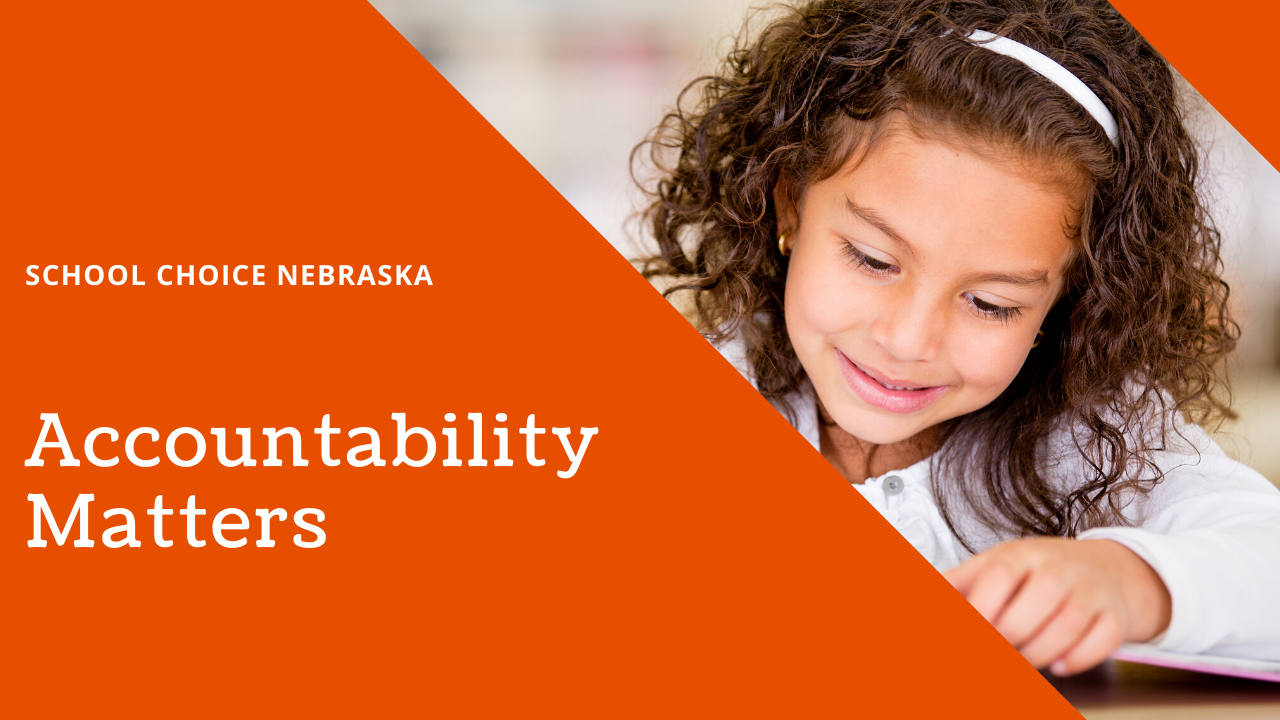
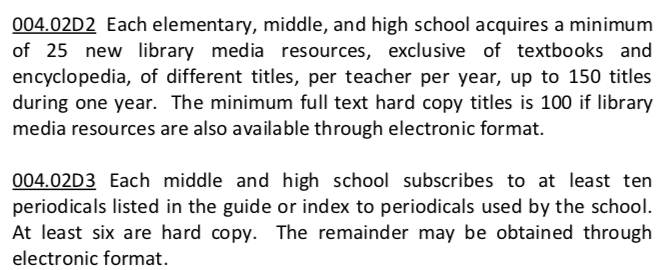
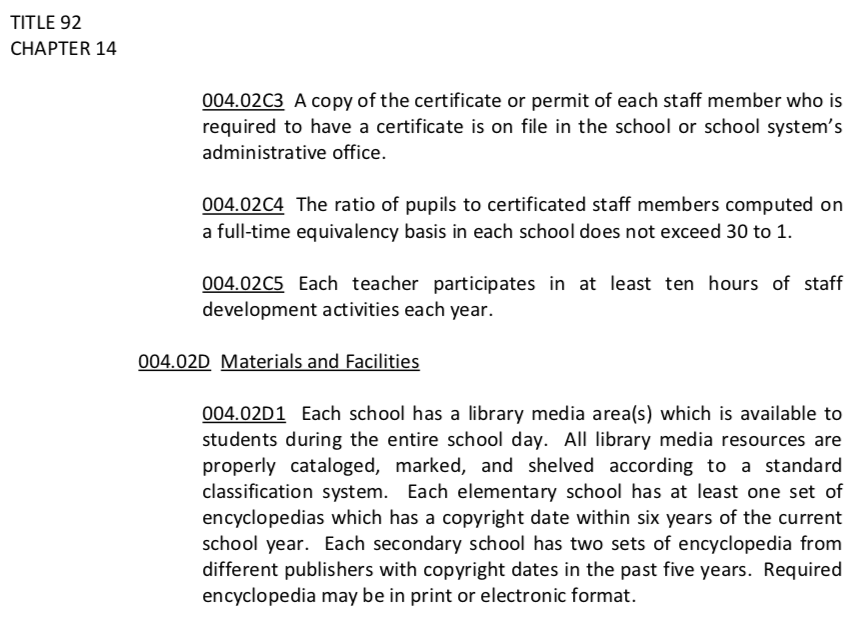
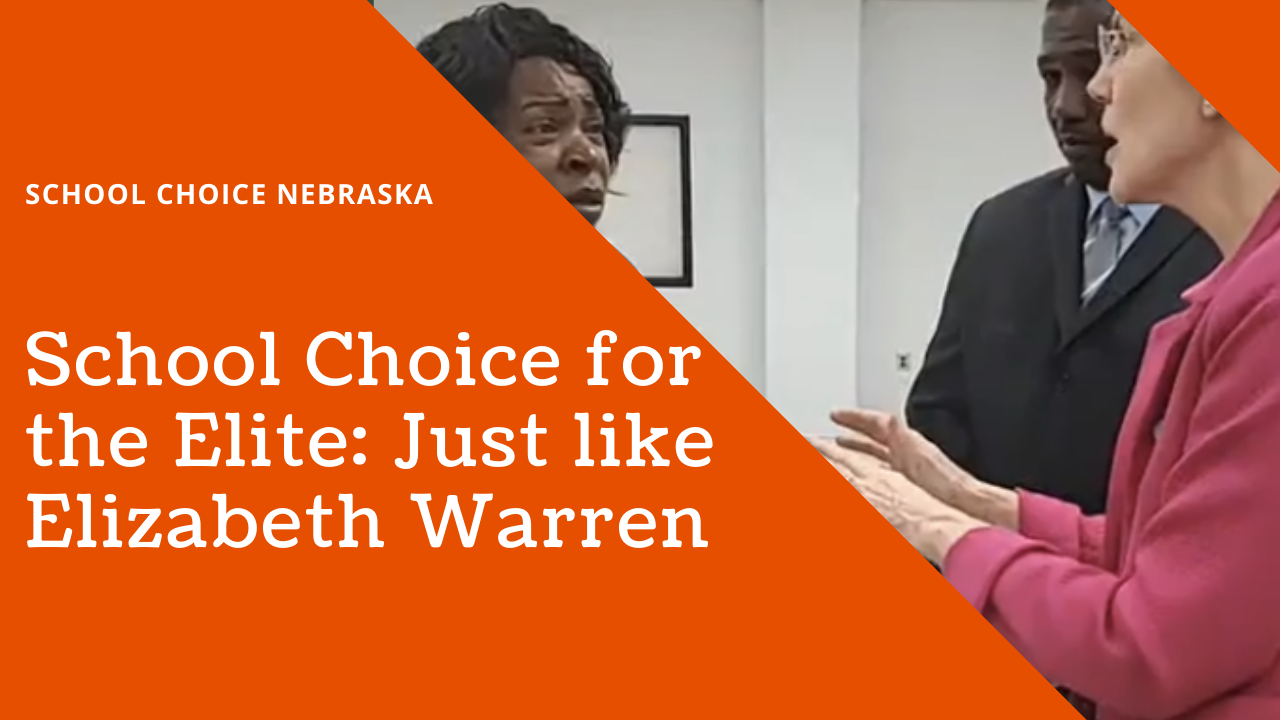

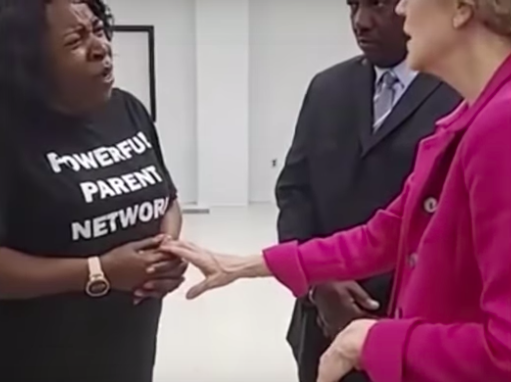
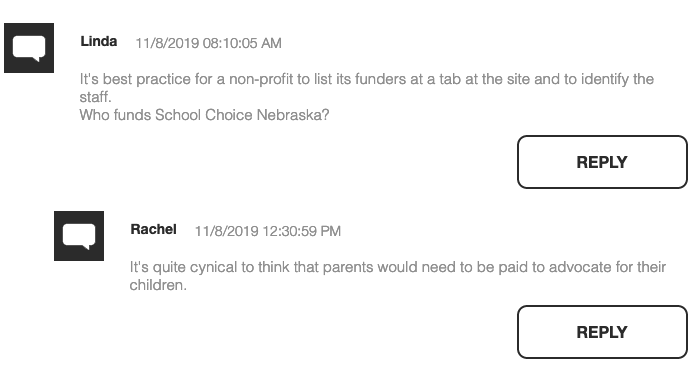
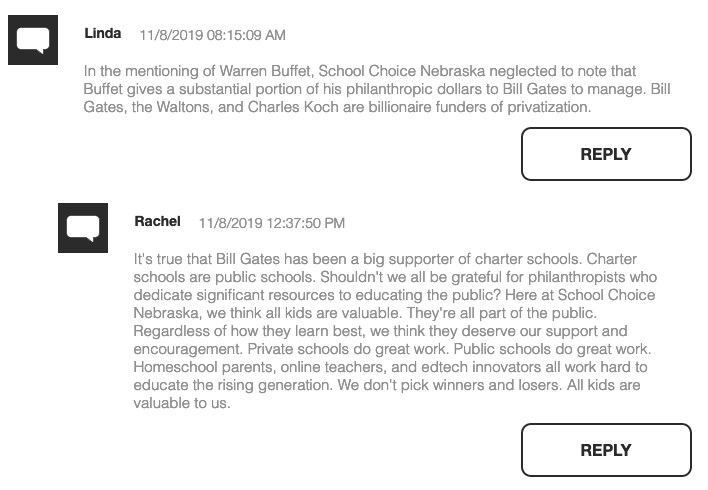
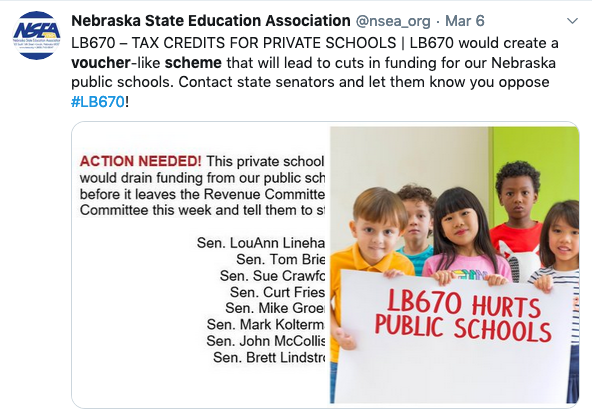


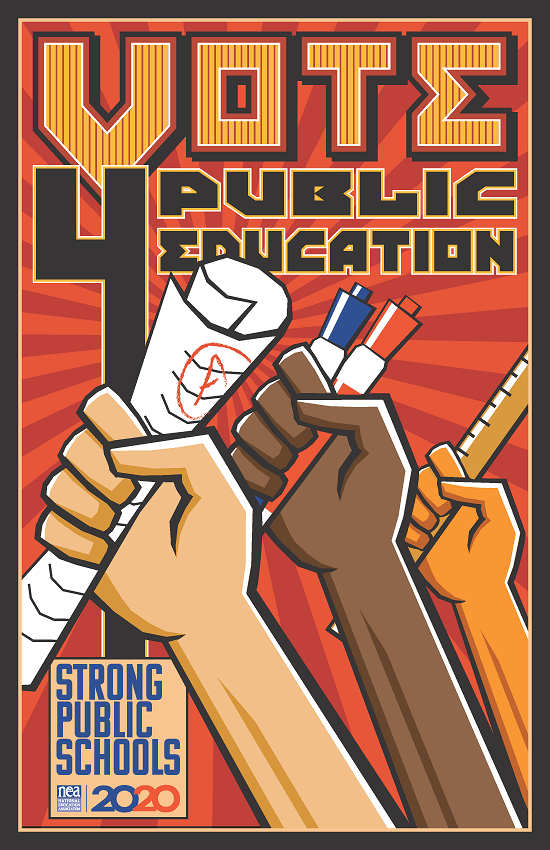

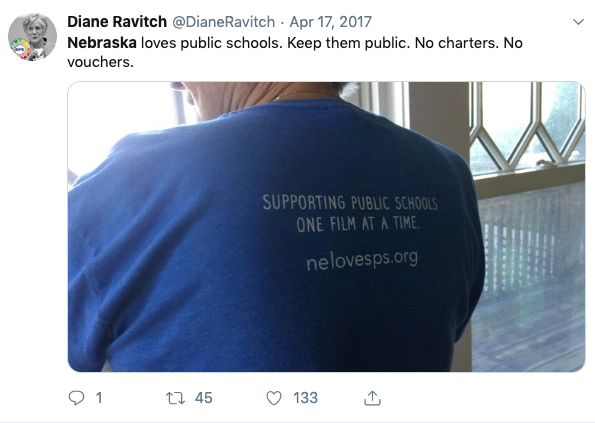
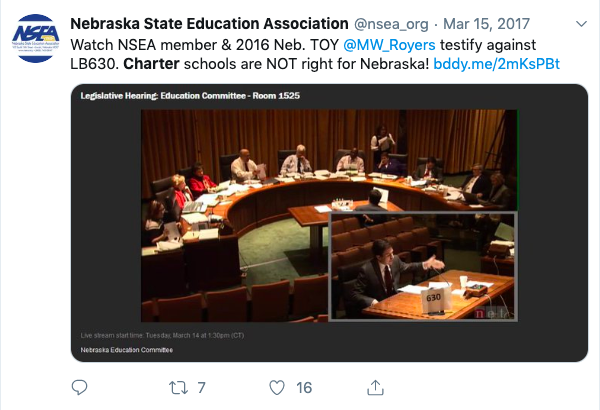
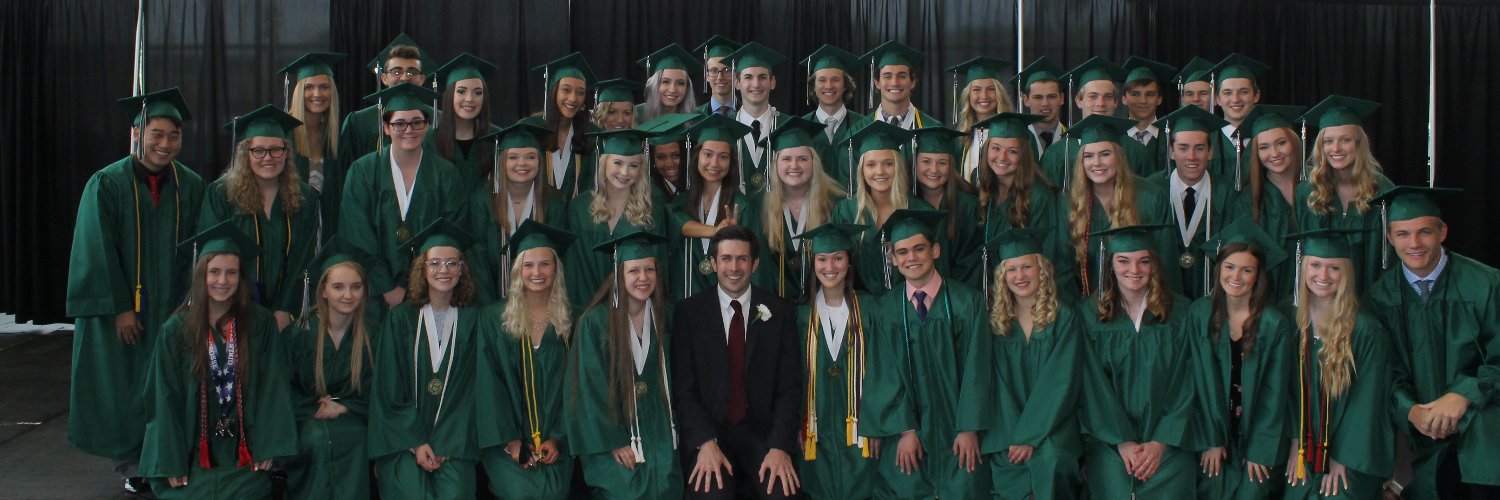
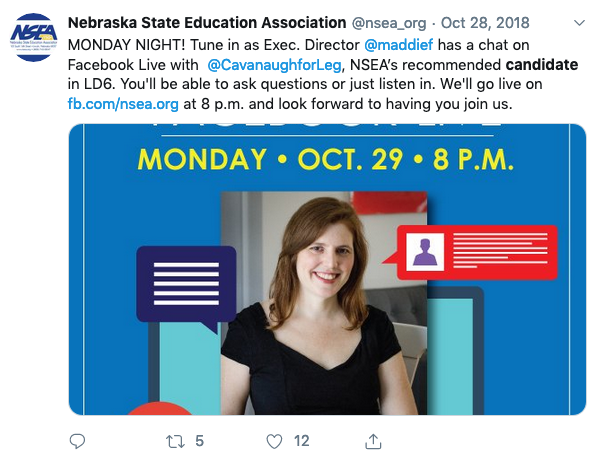
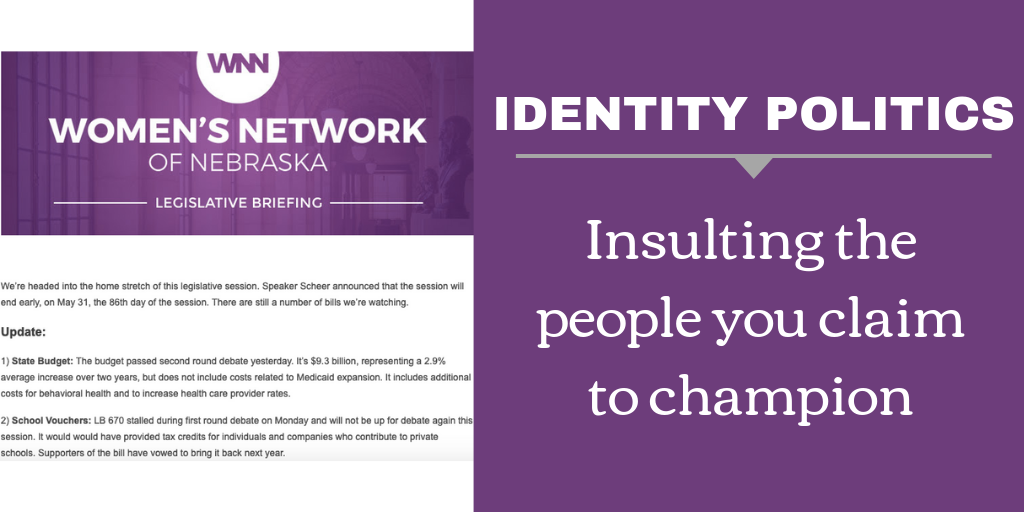
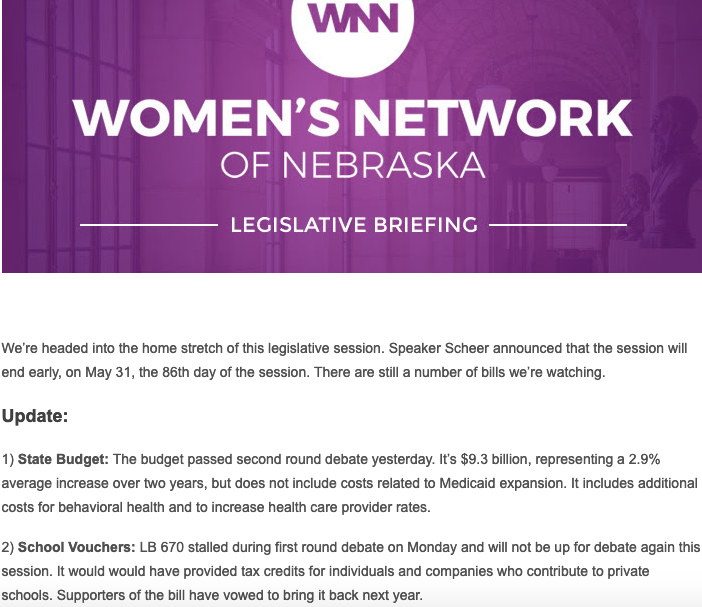
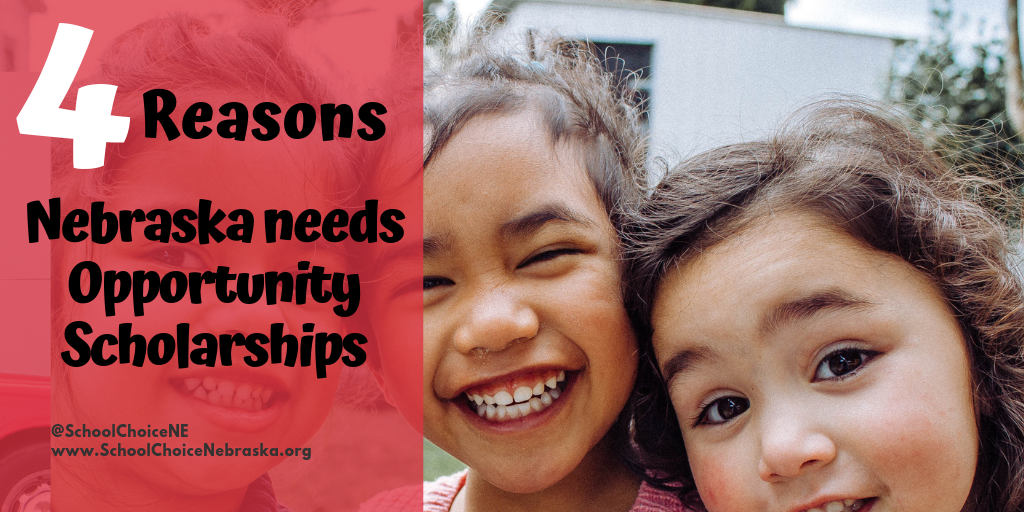
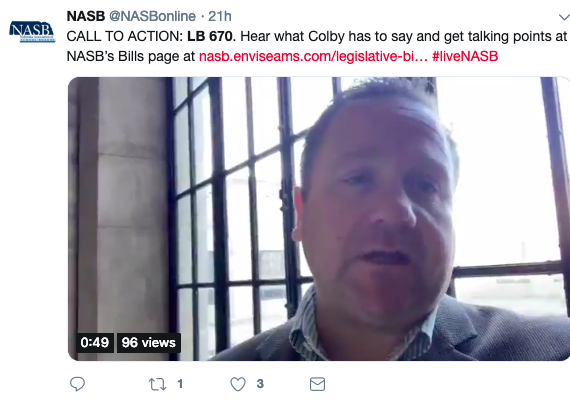
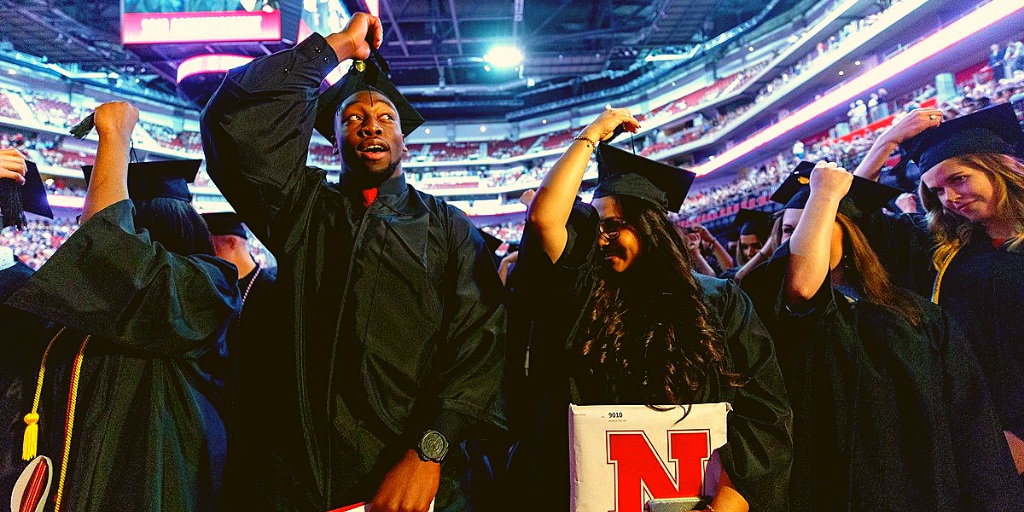


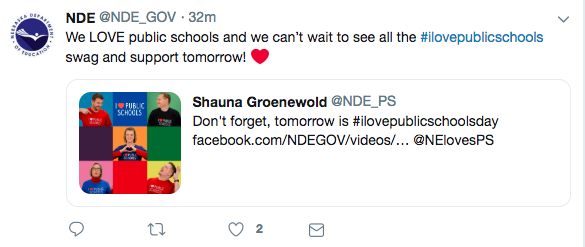
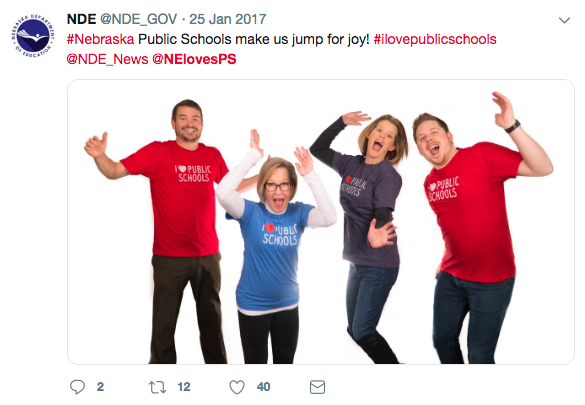
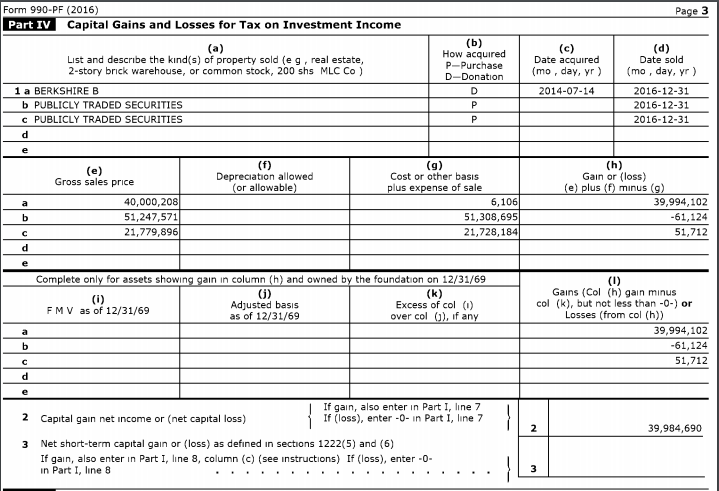

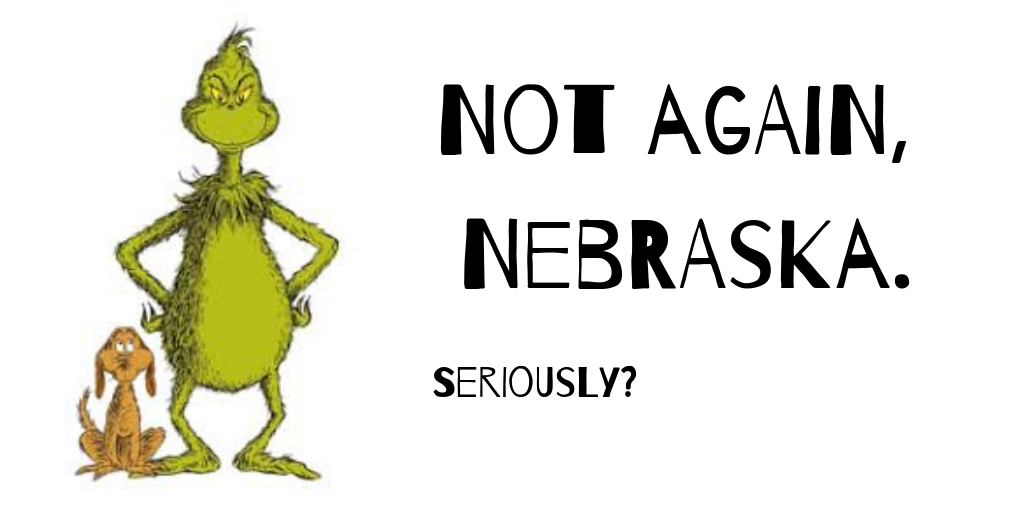
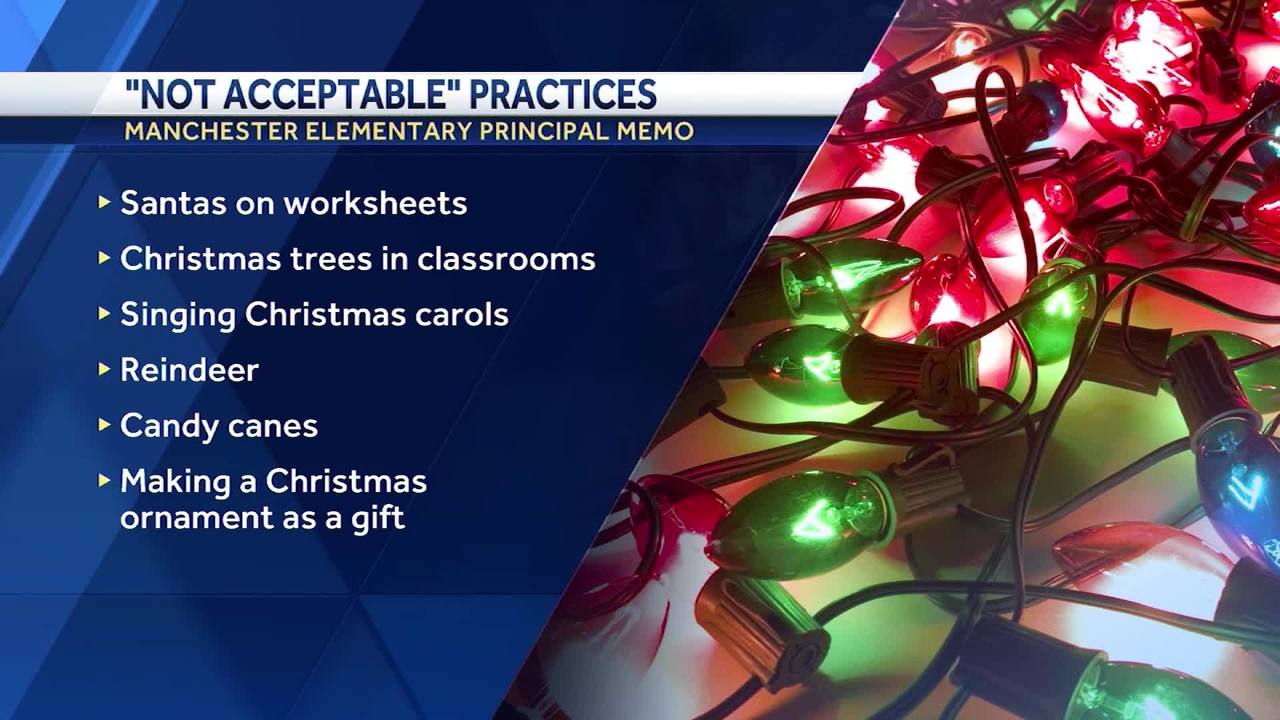
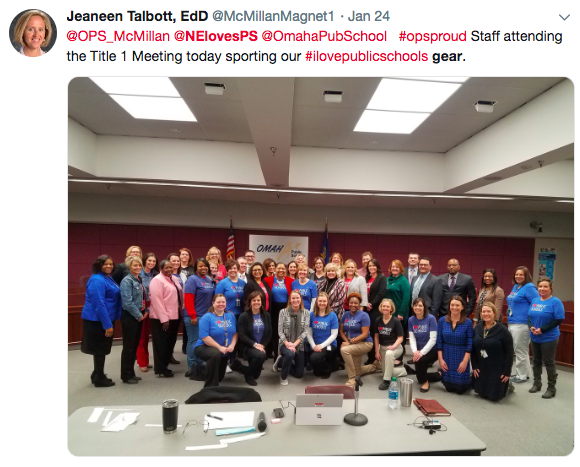
 RSS Feed
RSS Feed